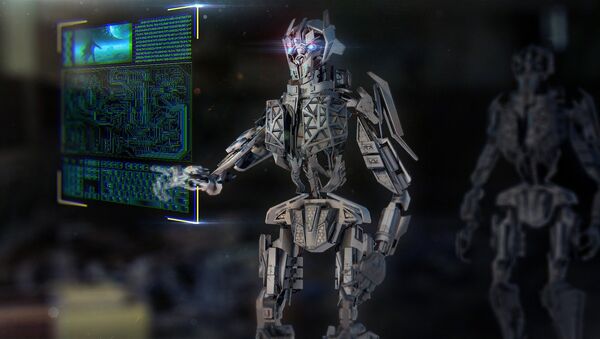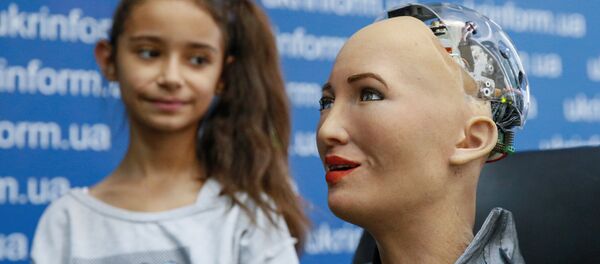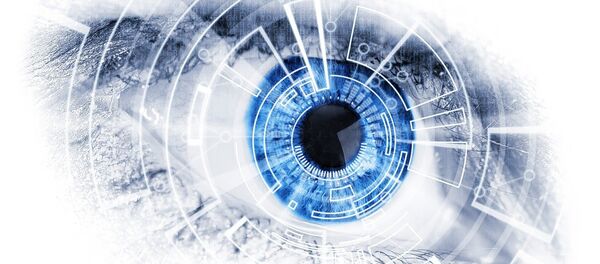Sputnik spoke about China's digital news anchors with Noel Sharkey, an emeritus professor of artificial intelligence and robotics at the University of Sheffield.
Sputnik: In your opinion how significant is this invention and what practical purposes can it serve?
Sputnik: Do you think that digital anchors will be able to replace humans?
Noel Sharkey: This one could already, but I would say that if after watching it for about five minutes, it starts to get a little bit repetitive and dull. But what it's doing is it's being trained using machine learning with a news anchor's facial expressions and body expressions. I've watched news presenters all my life and I think there's a limited repertoire they use, lifting the shoulders to show emphasis or nodding their head or lifting an eyebrow, and so it's possible that they will get that much better, but the thing about it is, it's CGI (computer-generated imagery).
The thing about that is they could make it a lot more interesting because a CGI can do anything, it can do things that a human could not. So for instance, if a CGI anchorman or anchorwoman who's reporting on news about a rocket that CGI could turn into a rocket and fly through the studio, it just needs a bit of imagination. But there are concerns here, because what if it got really, really good?
It's slightly uncanny at the moment, CGIs can be brilliant sometimes and if it gets really good and could actually look like it was someone, what's to stop it looking like a president or someone else and saying things that it shouldn't be saying, so there are some dangers there I think with it.
READ MORE: China Starts Program for Elite Teenage Students to Design AI Weapons
Sputnik: So do you think that CGIs can be used to blackmail somebody or to make a false flag attack?
Noel Sharkey: That's possible, that's what I was thinking. You can already manipulate videos, it's a terrible thing you can actually manipulate videos now and make things happen in videos that didn't actually happen and this sort of thing will help that. I don't know how long it will be before they get it that good but it's a possibility down the line. But it's also possible that you can have a whole army of these presenters delivering propaganda throughout the world 24 hours a day, which is another worry about it.
Sputnik: And in what other industries can similar inventions be implemented?
Noel Sharkey: One would be, obviously, the entertainment industry.
READ MORE: EU to Boost Border Security With AI Lie Detectors That Can Spot Illegal Migrants
Sputnik: Professor, in your opinion, should robots be used in professions which require a human touch? I can understand why companies use robots to assemble cars because this speeds up the process, but I can't understand why do they use them, for example, in news reading or entertainment?
Noel Sharkey: I don't understand that either, myself, really, because humans are very good at it. It is a kind of novelty factor, isn't it, it's trying to get ahead of your competitors and essentially it is because you can, that why that is, but there are other areas.
My opinion is that artificial intelligence is a great tool that could serve us well, but any decision that has any significant impact on a person's life should be conducted by another human being, a person who understands human meaning and culture.
READ MORE: Google CEO Secretly Met Pentagon Leaders Over AI Project — Reports
Sputnik: Professor, are we shooting ourselves in the foot by developing these robots and AI?
Noel Sharkey: To a certain extent, yes, but to another extent no. Where they can be very useful is in medicine for instance. We're seeing more and more systems that are used for early diagnoses of various diseases.
There's a new one that has just come out that shows two years ahead that someone will get Alzheimer's disease. There are some that will show well in advance that you can get a retinal disease, and that means they can be treated. There are lots of AI being used to look at climate change and how to manage that, so there are some very urgent matters and matters that can really help us.
So it's just that I don't want it extended too far into a human life where it's the business of humans, humans are the business of humans and making decisions about humans, so my motto is always humans first.
Views and opinions expressed in the article are those of Noel Sharkey and do not necessarily reflect those of Sputnik.






